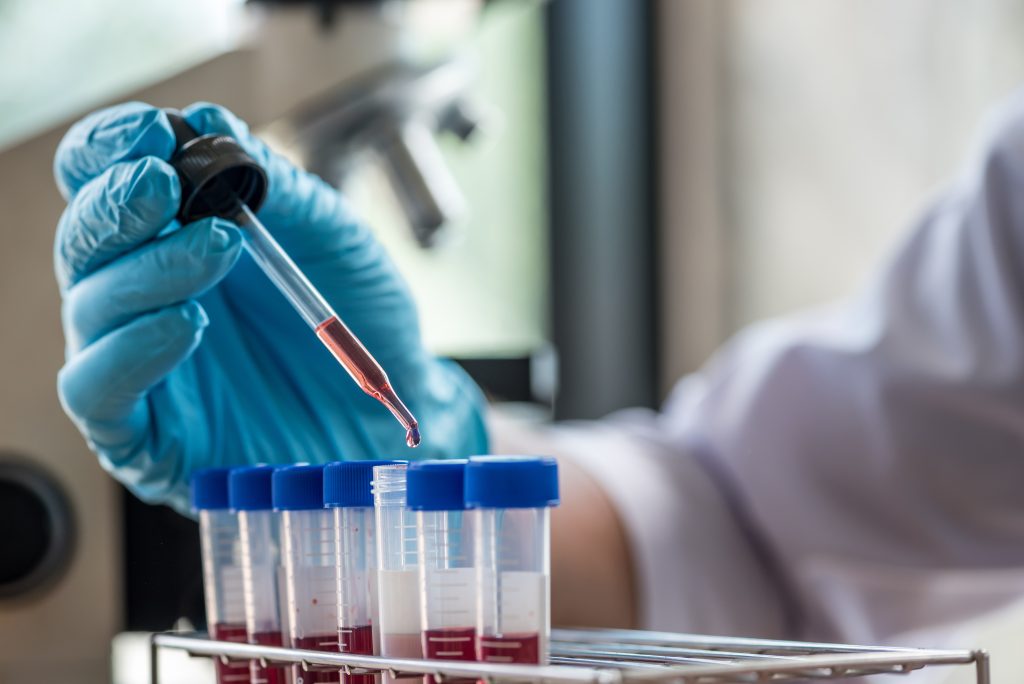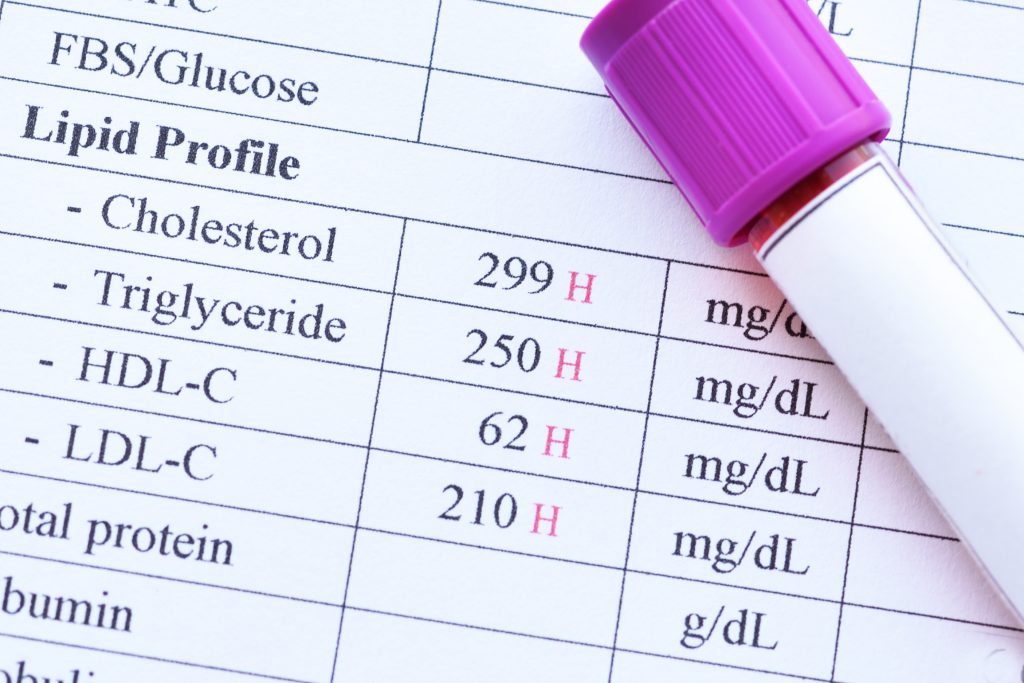WHAT IS A BLOOD TEST & WHY IS IT IMPORTANT?
Blood tests are the gold-standard that provide doctors and functional Nutritionist Practitioners with an excellent view into your health. A simple blood draw assesses your general health and evaluates and monitors conditions such as:
-
- diabetes
- liver and kidney issues
- thyroid
- vitamin deficiencies
- anaemias
- inflammation
- certain cancers
- cardiovascular health
- cholesterol levels
Regular blood testing is without a doubt one of the most important ways to keep track of your overall physical well-being. Getting tested at routine intervals helps to see how your body changes over time as well as allowing doctors and properly trained clinical nutritionists to make diagnoses, and inform treatment and therapy plans.
THE ROLE OF BLOOD TESTS IN NUTRITIONAL THERAPY
Blood testing is a key part of nutritional therapy. Testing is usually recommended at the start of the therapeutical relationship as it determines your physiological and biochemical states from the outset. Establishing a solid baseline with a full blood test is especially important as we can then monitor trends and identify subclinical ranges that might have otherwise gone unnoticed. This can make all the difference when it comes to designing an optimal nutrition action plan with the right recommendations to meet your expected outcomes, as well as monitor how you are responding to it.
Think of the human body as a car. Once a year, you book an MOT to check your car is safe to be on the road and that everything is working correctly. The same check up routine should be considered when it comes to your body. Is it functioning optimally? Is it safe for use, or in need of some maintenance or repairs to avoid a breakdown?

Interpreting and evaluating blood labs thoroughly is a skill, and connecting blood chemistry markers to your symptoms is a very valuable tool we use in nutritional therapy to provide us with key information relating to underlying deficiencies or excesses such as low levels of red blood cells, or haemoglobin, vitamin D, B12, folate, or iron. This accuracy of testing provides great insights into why you feel a certain way. For example, determining you have anaemia and which specific type can explain your constant fatigue, or you may have been taking too much vitamin D or certain supplements. All these things can be detected in your blood test.
In my clinical practice, I often see clients whose General Practitioner or doctor has overlooked the implications of low levels of a marker and the clients symptoms have persisted thereafter. Iron, for example, is linked to anaemia and when levels are low, this can be casually chalked off as being “being normal” or “nothing to worry about”. However, when I see low levels of a marker, in this case mild anaemia, it is a signal that further investigation to determine the underlying cause is required. Why is your iron low? Is it due to heavy periods in women? Or could it be internal bleeding, or gut malabsorption? These are essential questions to understand the root cause of your ailment and determine the best course of therapy.
Another example is if your blood test shows low levels of Vitamin B12. This is useful information and should not be ignored. As clinical functional medicine nutritionists, we dig deeper, considering what may be creating the deficiency. Could it be the possibility of gut malabsorption or other conditions such as low stomach acid (hypochlorhydria),small intestinal bacterial overgrowth (SIBO), or pancreatic insufficiency?
Assessing your blood test results gives us a wealth of specific information about your health status and the tools needed to create a therapy plan that suits you by modifying your diet and lifestyle accordingly.

TYPES OF BLOOD TEST
COMPLETE BLOOD COUNT
A routine complete or full blood count checks for levels of every major cell in your blood: white blood cells, red blood cells, and platelets. haemoglobin, and hematocrits. These are important markers as decreased or elevated levels of these components may indicate:
-
- anaemia (iron deficiency)
- nutritional deficiencies, such as B6 or B12
- clotting problems
- blood cancer
- infection
- immune system disorders
BASIC METABOLIC PANEL
A basic metabolic panel usually checks for the following levels:
-
- glucose
- sodium
- potassium
- calcium
- bicarbonate
- chloride
- blood urea nitrogen (BUN)
- creatinine
Abnormal results of the above markers may be due to:
-
- kidney disease
- diabetes
- hormone imbalances
COMPREHENSIVE METABOLIC PANEL
Includes all the measurements of the Basic Metabolic Panel as described above plus additional proteins and substances related to liver function, such as:
-
- albumin
- total protein
- alkaline phosphatase (ALP), an enzyme mostly found in the bones and liver that’s involved in several bodily processes
- alanine aminotransferase (ALT), an enzyme found in the liver
- aspartate aminotransferase (AST), an enzyme found in the liver and other tissues within the body
- bilirubin, which is waste resulting from the breakdown of red blood cells that the liver filters out
LIPID PANEL
This test checks your cholesterol levels for:
-
- high-density lipoprotein (HDL), or “good” cholesterol
- low-density lipoprotein (LDL), or “bad” cholesterol
HDL removes harmful substances from your blood and helps the liver break them down into waste, while LDL is considered “bad” because it can, in excess can cause damage in the arteries, increasing your risk of heart disease. Normal levels can also vary by age.
THYROID PANEL
A thyroid panel, or thyroid function test, checks how well your thyroid is producing and reacting to certain hormones, such as:
-
- Triiodothyronine (T3). Along with T4, this regulates your heart rate and body temperature.
- Thyroxine (T4). Along with T3, this regulates your metabolism and how you grow.
- Thyroid-stimulating hormone (TSH). This helps regulate the levels of hormones your thyroid releases.
Abnormal levels of these hormones can indicate numerous conditions, such as:
-
- low protein levels
- thyroid growth disorders
- abnormal levels of testosterone or oestrogen
C-REACTIVE PROTEIN TEST
C-reactive protein (CRP) is made by your liver when tissues in your body are inflamed. High CRP levels indicate inflammation from a variety of causes, including:
-
- bacterial or viral infection
- autoimmune diseases, such Lupus or rheumatoid arthritis
- inflammation related to diabetes
- inflammation related to physical trauma or habits like smoking
- cancer
WHEN IS IT IMPORTANT TO HAVE A BLOOD TEST?
-
- If you are experiencing unusual and persistent symptoms such as fatigue, recurrent infections, abnormal weight loss or gain, bone pains.
- If you want to optimise your health and have a general MOT or service. Knowledge is power so to know the state of your biochemistry can allow you to modify your diet or fitness plan to promote healthy habits accordingly.
- To prevent disease or complications because of familial medical history of cardiovascular disease, cholesterol, stroke, kidney conditions so you can catch the warning signs.
HOW OFTEN SHOULD YOU GET A BLOOD TEST?
This depends on your age, health status, and may also be at the discretion of your doctor if you are under consultant care. In clinical practice at Nutrition Diets, the order of blood tests for clients depends on personal circumstances and health status. Generally speaking, routine blood tests are recommended once or twice a year to monitor overall health. In the case of anaemia (Iron or B6 or B12) or due to low levels of vitamin D (very common nowadays), bloods can be retested within 3 months to monitor progress.

WHY DO SOME BLOOD TESTS REQUIRE FASTING?
Everything you eat and drink contains vitamins, proteins, and other nutrients that can cause the related levels in your blood to temporarily spike or drop. Fasting for 8 to 12 hours helps ensure that blood test results are free from these variables, making your test results as accurate as possible.
Some common tests that may require fasting include:
-
-
-
- cholesterol tests
- blood sugar tests
- liver function tests
- kidney function tests
- basic metabolic panel
- glucose tests
-
-
HOW TO PREPARE FOR A BLOOD TEST
-
-
-
- Avoid drinking or eating for 8-12 hours before the test.
- Avoid alcohol 1-2 days prior to the test.
- Don’t smoke 1 hour prior to the test.
- Stop all supplements a week before the test for more accurate results.
-
-
PREVENTION IS THE BEST FORM OF CURE
Some people only get a blood test when it’s ordered by a GP in response to a health complaint, however, in my clinical practice, I ask my clients to book an appointment with their GP if they have not had one recently. This is the most economical option, however, given the state of our health system at present, your GP may not be able to see you when you need, or may not run a fully comprehensive blood test due to the financial pressure the NHS is under.
For those who cannot wait, or are unable to get comprehensive blood tests via their GP, we offer private blood testing and other functional tests in accordance with your medical situation, or simply as your annual check up to monitor your general health. Blood and functional testing are important as they help bridge the gap between conventional treatments and holistic alternatives, providing us confidence and scientific assurance during the management of your health.
If you are concerned about your health, my clinical advice is to check in with your GP before starting nutritional therapy. We are happy to write referral letters to your GP requesting full blood count plus additional markers we may find necessary at the start of a nutritional consultation.
Your Health. Your Choice.
Blood tests are a convenient and fast way of getting a wider view of your health. A comprehensive blood chemistry panel covers a wider range of markers in one go that serves as a window into your present health without having to wait weeks to get one done.
For more information or guidance on testing, functional nutritional therapy, or GP referral letters get in touch.
